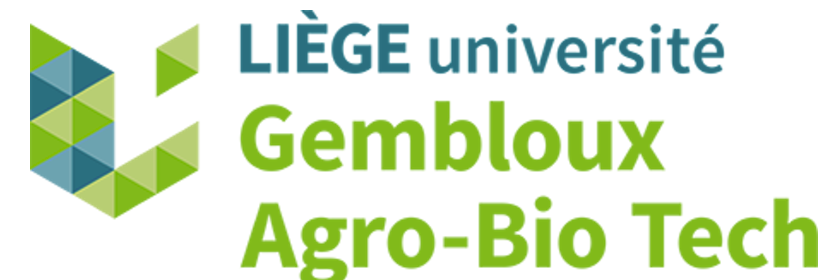Location
Faculté à la pointe du développement durable et de l’éco-innovation, de la parcelle au consommateur, Gembloux Agro-Bio Tech se consacre exclusivement aux sciences agronomiques et à l’ingénierie biologique.
Elle forme des bioingénieurs grâce à un programme complet en cinq ans. Quatre filières d’étude distinctes permettent aux étudiants de se spécialiser dans des domaines clés des sciences du vivant : sciences et technologies de l’environnement, la gestion des forêts et des espaces naturels, les sciences agronomiques, la chimie et les bioindustries.
Ces spécialisations préparent les étudiants à gérer la bio-industrie de demain, à utiliser les biotechnologies, les agromatériaux et les biocarburants, à analyser les problèmes des eaux, des sols, de l’air, à gérer les ressources naturelles, à épurer, dépolluer, à mettre au point de nouveaux médicaments et de nouvelles formes d’aliments, etc.
Gembloux Agro Bio Tech offre également une formation complète d’architecte paysagiste, organisée en partenariat avec la Haute-Ecole Charlemagne et la Faculté d’architecture de l’ULB (La Cambre Horta).
Intégrée à l’Université de Liège depuis le 1e octobre 2009, Gembloux Agro Bio Tech est une faculté à taille humaine, ouverte sur le monde et dont la qualité de l’enseignement et l’excellence des recherches sont réputées internationalement depuis plus de 150 ans.
Members:
Resources
Displaying 1 - 5 of 31Le paysage, enjeu et instrument de l'aménagement du territoire
Landscape: stake and tool for land use planning. For last decades, landscape has gradually become a stake of land use planning in Europe. The European Landscape Convention formalizes landscape as an issue of general interest and promotes a democratic landscape planning. However, landscape is rarely in practice the subject of pluridisciplinary and concerted approaches. So land use planning searches for a landscape concept able to gather together the various disciplinary and societal points of view. This federative concept can help it to build concerted policies of landscape planning.
Le paysage, enjeu et instrument de l'aménagement du territoire
Landscape: stake and tool for land use planning. For last decades, landscape has gradually become a stake of land use planning in Europe. The European Landscape Convention formalizes landscape as an issue of general interest and promotes a democratic landscape planning. However, landscape is rarely in practice the subject of pluridisciplinary and concerted approaches. So land use planning searches for a landscape concept able to gather together the various disciplinary and societal points of view. This federative concept can help it to build concerted policies of landscape planning.
Le paysage, enjeu et instrument de l'aménagement du territoire
Landscape: stake and tool for land use planning. For last decades, landscape has gradually become a stake of land use planning in Europe. The European Landscape Convention formalizes landscape as an issue of general interest and promotes a democratic landscape planning. However, landscape is rarely in practice the subject of pluridisciplinary and concerted approaches. So land use planning searches for a landscape concept able to gather together the various disciplinary and societal points of view. This federative concept can help it to build concerted policies of landscape planning.
Modélisation empirique des principaux déterminants socio-économiques de la gestion des exploitations agricoles au Sud-Ouest du Burkina Faso
Empirical modelisation of socio-economic determinants in smallholder farming management in southwest of Burkina Faso. The study aims at identifying farmer’s decision rules and the socio-economic determinants of organic resource dynamics. Decision rules study and socio-economic determinants of organic resource dynamics allowed quantification of their impact on these organic resource dynamics. The main results of the investigations reveal that principal decision rules are edicted and managed by local authorities.
L'agriculture périurbaine à Sétif (Algérie) : quel avenir face à la croissance urbaine ?
Suburban agriculture in Setif (Algeria): which future in face of urban growth? The suburban agriculture in Setif which is mainly based on the specialized agricultural activities (cereals, animal production) has an important role. Its economic and social values are regarded in terms of the hugeness of its areas, the number of its manpower and the quality of its production. It covers 75% of the municipality surface and production systems are generally organized according to the climatic conditions.


